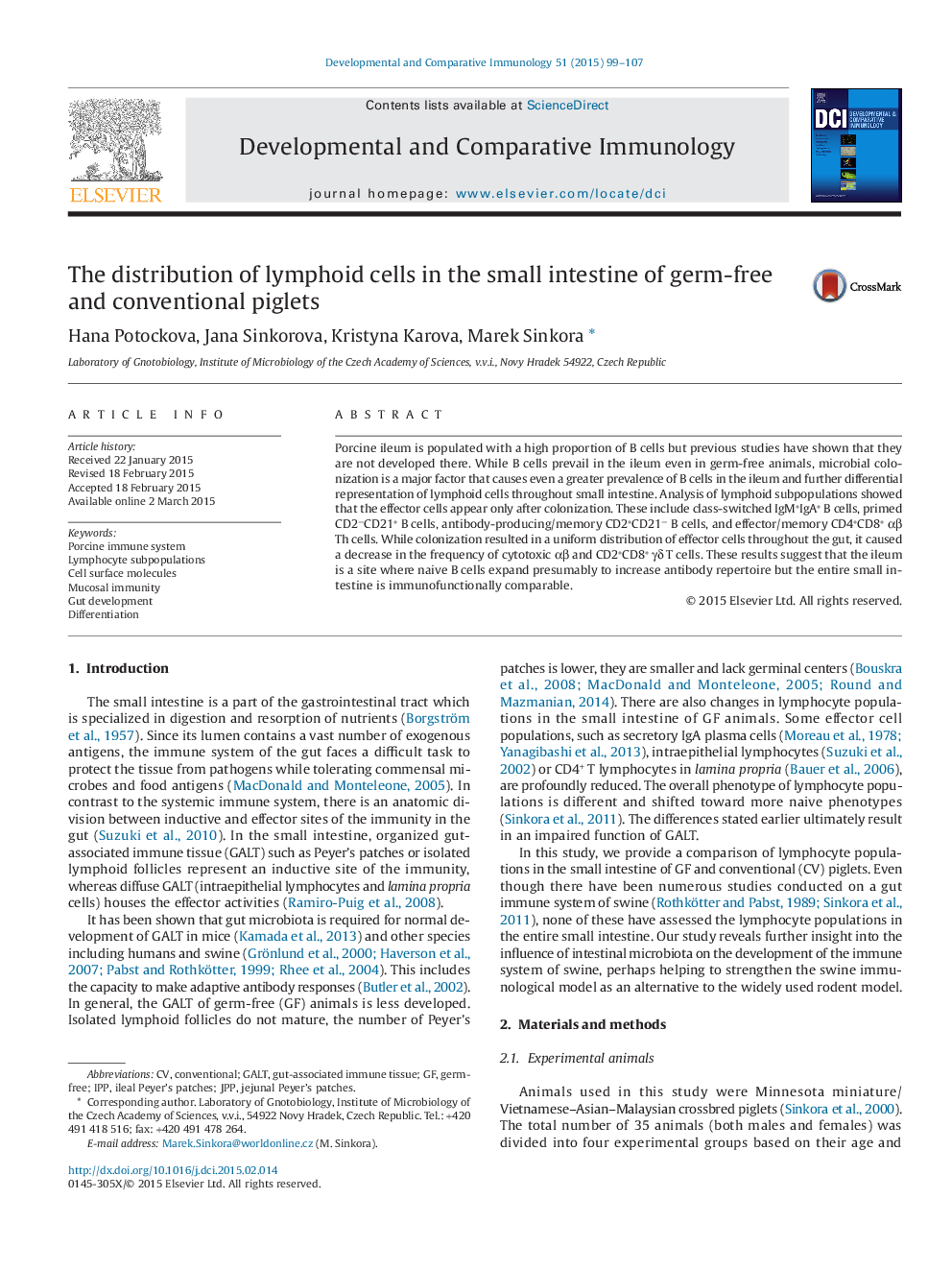| Article ID | Journal | Published Year | Pages | File Type |
|---|---|---|---|---|
| 10971425 | Developmental & Comparative Immunology | 2015 | 9 Pages |
Abstract
Porcine ileum is populated with a high proportion of B cells but previous studies have shown that they are not developed there. While B cells prevail in the ileum even in germ-free animals, microbial colonization is a major factor that causes even a greater prevalence of B cells in the ileum and further differential representation of lymphoid cells throughout small intestine. Analysis of lymphoid subpopulations showed that the effector cells appear only after colonization. These include class-switched IgM+IgA+ B cells, primed CD2-CD21+ B cells, antibody-producing/memory CD2+CD21- B cells, and effector/memory CD4+CD8+ αβ Th cells. While colonization resulted in a uniform distribution of effector cells throughout the gut, it caused a decrease in the frequency of cytotoxic αβ and CD2+CD8+ γδ T cells. These results suggest that the ileum is a site where naive B cells expand presumably to increase antibody repertoire but the entire small intestine is immunofunctionally comparable.
Keywords
Related Topics
Life Sciences
Biochemistry, Genetics and Molecular Biology
Developmental Biology
Authors
Hana Potockova, Jana Sinkorova, Kristyna Karova, Marek Sinkora,
